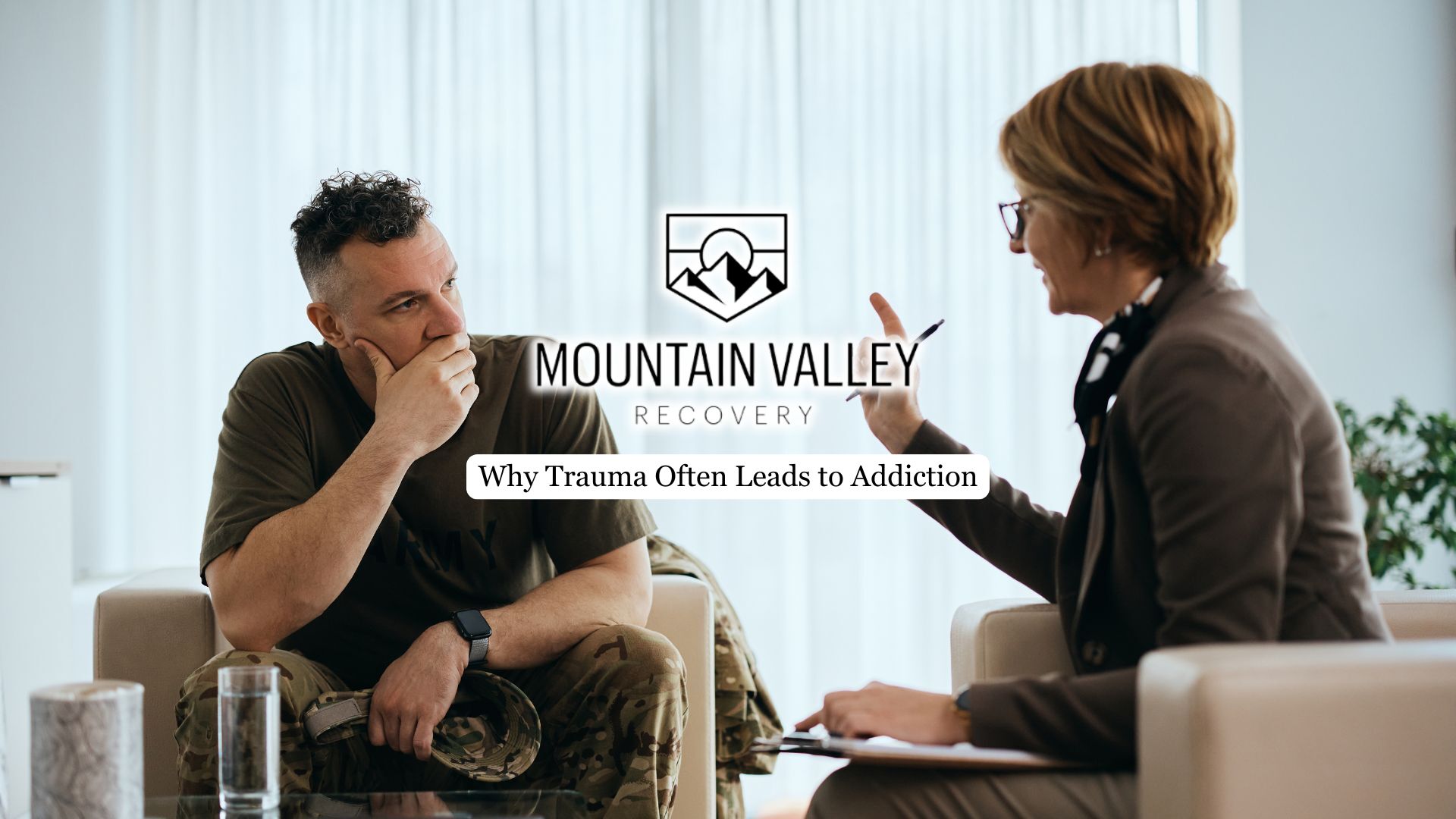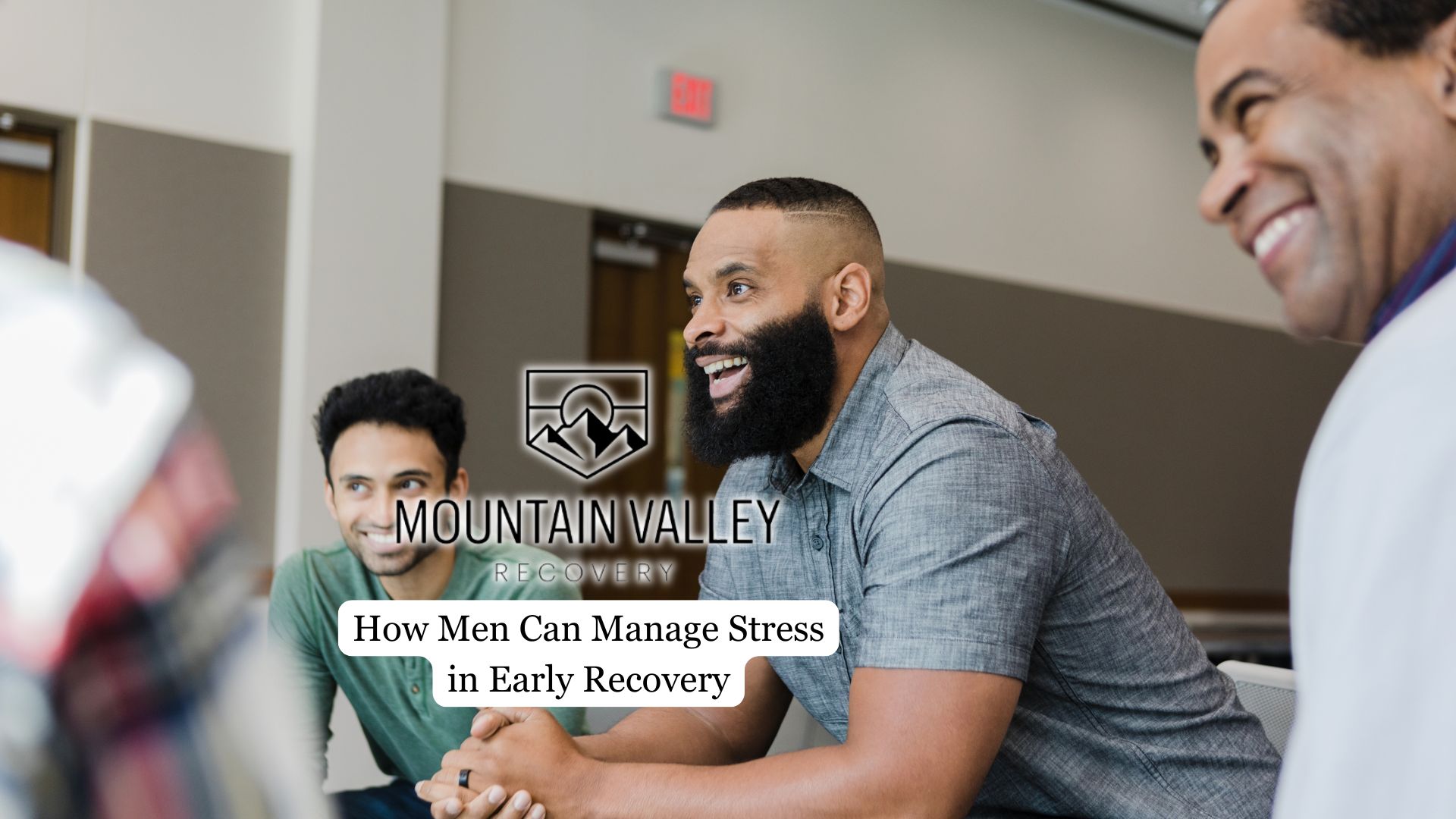Trauma, in its multifaceted and deeply personal nature, can leave lasting scars on the psyche. These scars, if left unaddressed, can significantly increase the risk of addiction. Understanding the complex interplay between trauma and addiction is crucial for developing effective and compassionate treatment strategies.
In this article, you will discover specialized programs designed to help men heal from both trauma and addiction, paving the way for a brighter, substance-free future.
The Link Between Trauma and Addiction
When trauma strikes, it can shatter a person’s sense of safety and stability, leaving them grasping for relief from the overwhelming emotional pain.
It’s no surprise that over 70% of adolescents in addiction treatment have faced childhood trauma. You see, the constant activation of the amygdala due to chronic trauma leads to heightened anxiety and hyperarousal.
To cope, many individuals turn to substances as a form of self-medication, seeking temporary escape from their distress. However, this often backfires, as substance use tends to worsen the effects of trauma, creating a vicious cycle where addiction and mental health issues feed off each other.
Statistics show that those with a history of trauma are significantly more likely to develop addiction.
Mountain Valley Recovery in Utah offers a specialized program to help men get through trauma and addiction. You can learn more about the program by visiting the rehab’s Trauma Therapy for Addiction page.
The Neuroscience Behind the Connection
There is a profound neurobiological basis for the relationship between trauma and addiction. Trauma can alter the structure and function of the brain, particularly in areas involved in emotion regulation, reward processing, and stress response.
For instance, it can affect the amygdala, the region of the brain responsible for processing emotions, especially fear and anxiety. Trauma can lead to an overactive amygdala, resulting in heightened anxiety and a greater sensitivity to triggers.
Trauma can impair the function of the hippocampus, the brain region crucial for memory and learning, making it difficult to process and integrate traumatic memories, leading to fragmented and intrusive recall.
When substances are introduced, they further disrupt these brain functions. Drugs and alcohol can hijack the brain’s reward system, leading to intense cravings and compulsive drug-seeking behavior.
Moreover, the prefrontal cortex, the area of the brain responsible for executive functions like decision-making and impulse control, can be underdeveloped or less functional in individuals with trauma histories. This makes it more challenging to resist impulsive behaviors, including substance use, even when they are aware of the potential negative consequences.
Why Men Are Particularly Vulnerable
While trauma and addiction can affect individuals of any gender, men often face unique challenges in seeking help. Societal expectations and ingrained cultural norms can pressure men to suppress their emotions, “tough it out,” and avoid seeking help for mental health issues.
As a result, men may be less likely to acknowledge their trauma or seek professional help, allowing their symptoms to fester and worsen over time.
The pressure to remain stoic and self-reliant can lead men to turn to alcohol or drugs as a way to cope with their pain in secret.
Other men may express their trauma through anger, aggression, or risk-taking behaviors, which can be misinterpreted and further isolate them.

The Importance of Addressing Trauma in Addiction Treatment
Effective addiction treatment must address the underlying trauma that often drives substance use disorders.
Recognizing when to seek help for addiction is crucial for recovery. Key signs include being unable to control your substance use despite repeated attempts to stop, experiencing withdrawal symptoms when you try to quit, and continuing to use even when it causes problems in your personal or professional life. If you recognize these patterns in yourself or someone you care about, reaching out for professional support can make a significant difference in starting recovery.
When you seek help for addiction, the treatment program must incorporate trauma-informed care. This approach recognizes the significant impact of trauma on your mental health and substance use, and it aims to provide a safe, supportive environment for healing.
By addressing both trauma and addiction simultaneously, you can develop healthier coping strategies, build resilience, and reduce the risk of relapse.
Trauma-informed addiction treatment helps you process unresolved emotional pain, learn effective self-regulation techniques, and establish a strong foundation for long-term recovery.
How to Break the Cycle of Trauma and Addiction
Addressing the link between trauma and addiction requires recognizing the underlying trauma and providing individuals with the tools and support they need to heal. One of these is the trauma-informed assessment. Screening for trauma history is essential in any assessment for substance use disorders. Understanding the individual’s trauma history can inform treatment planning and ensure that treatment is tailored to their specific needs.
Integrated treatment is also crucial to address both trauma and addiction simultaneously and is often more effective than treating them separately. Integrated treatment programs provide coordinated care for both disorders.
Harm reduction strategies can minimize the negative consequences of substance use, such as overdose and disease transmission. This approach can be constructive for individuals who are not yet ready to abstain from substances.
Support groups offering group therapy activities can play an essential role to break the vicious cycle. Connecting with other trauma survivors can provide a sense of community and support. Support groups can help individuals feel less alone and more empowered to heal.
Final Thoughts From Mountain Valley Recovery
If you’re struggling with addiction rooted in trauma, Mountain Valley Recovery understands the complex interplay between these issues and is here to support men on their journey to healing. By providing a nurturing environment and developing healthy coping strategies, you can break free from the grip of addiction. You can take the first step towards a brighter future and contact Mountain Valley Recovery today.





